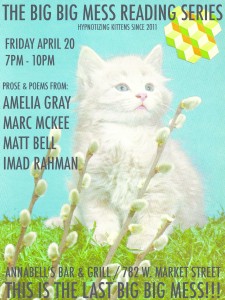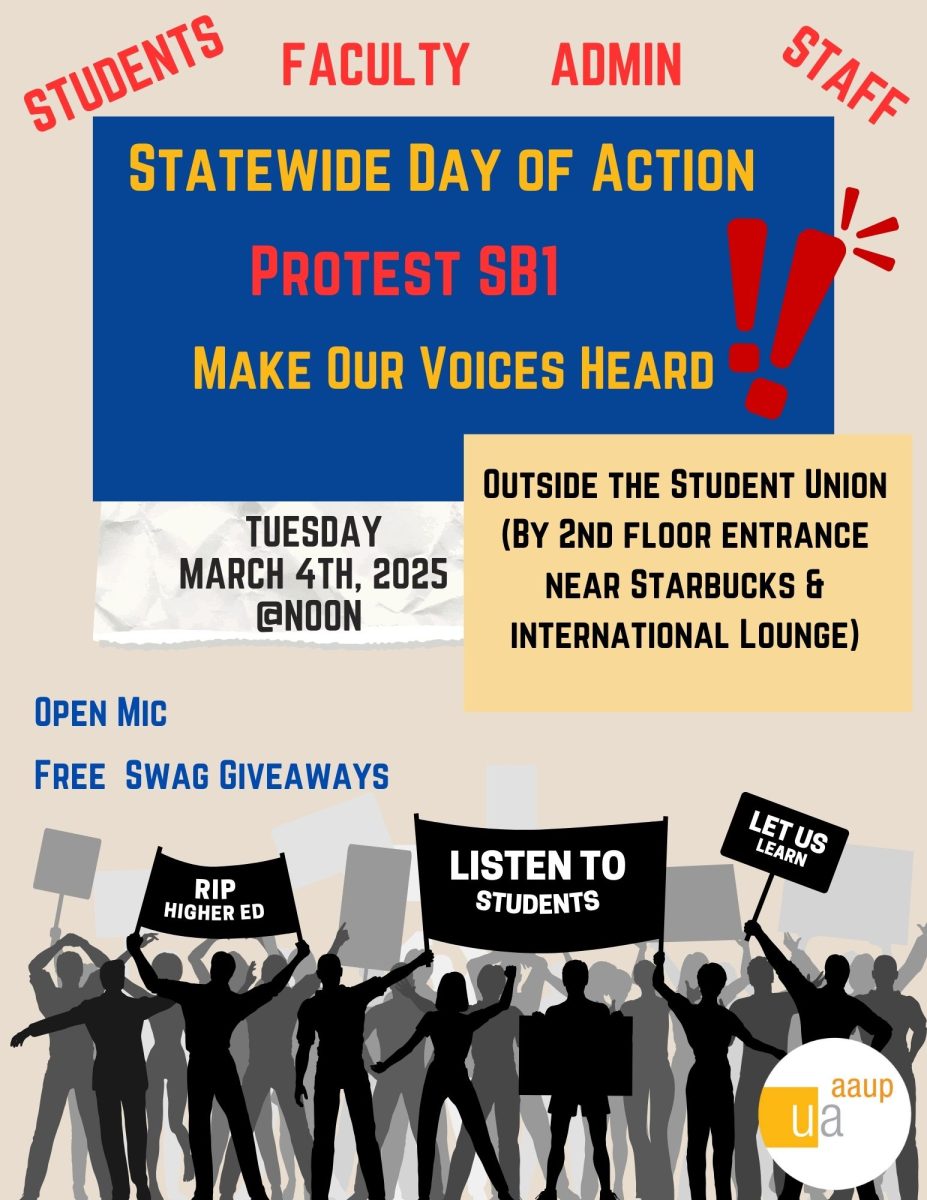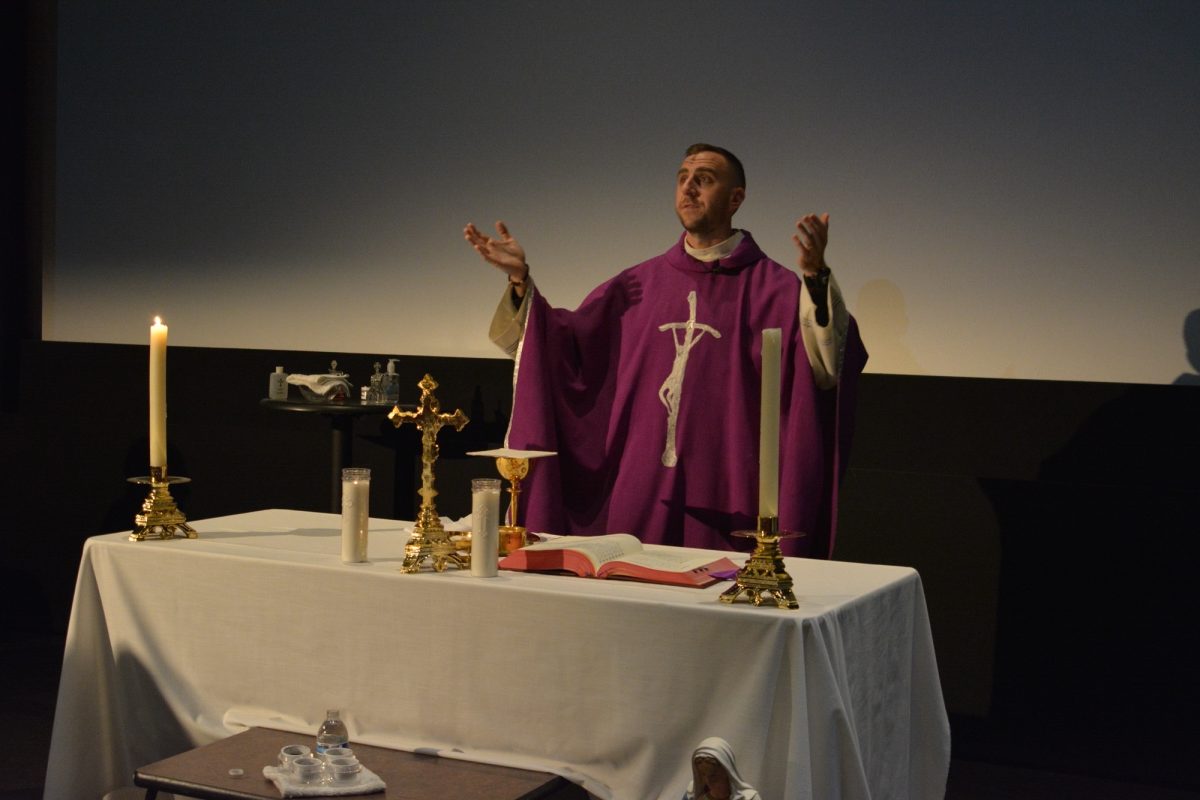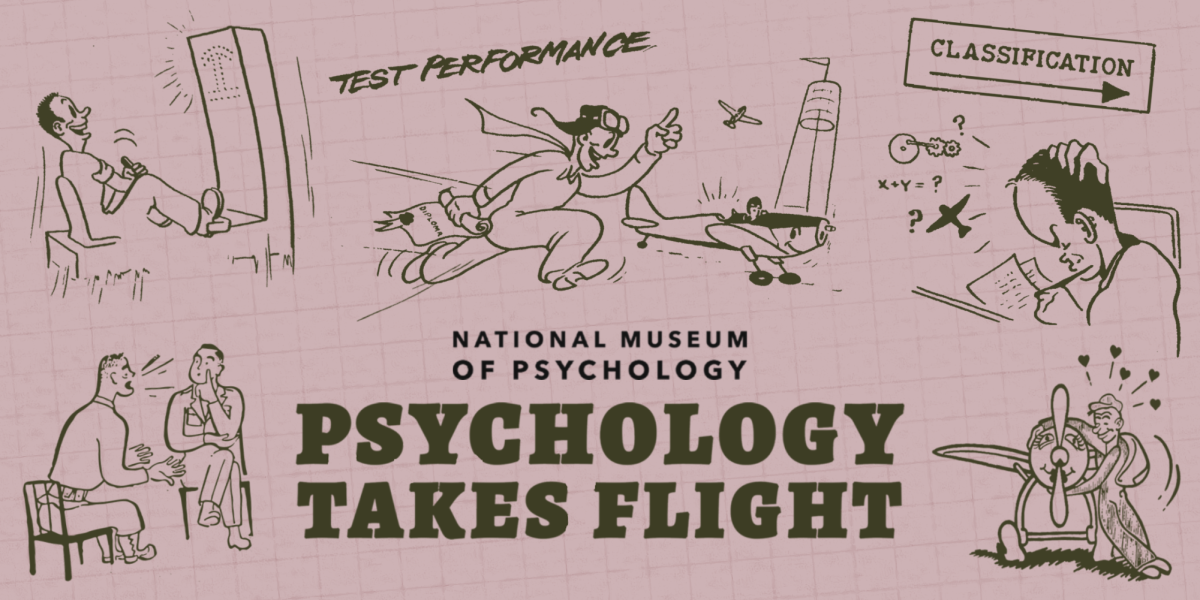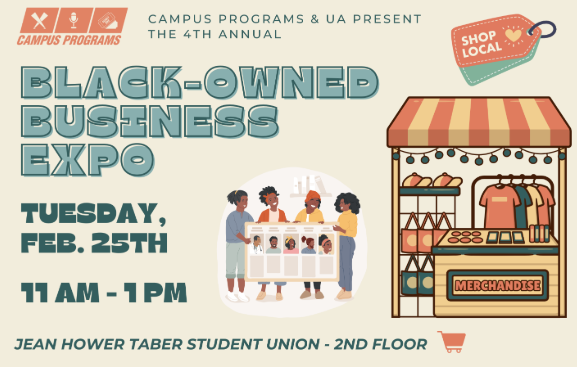Written by: Maggie Duff
When the typical Akronite embarks on a quest for culture in the city, he or she generally visits EJ Thomas Hall, the Akron Art Museum, local galleries or maybe even a jazz club or a house show.
Yet, there is a quieter side of expression that has been missing from our culture, one that is tucked away in libraries, whispered throughout Olin Hall, and thriving in the minds of all of us. This, of course, is the art of poetry.
Nick Sturm, graduate student in creative writing at The University of Akron, is looking to change this. He has been working hard since the summer of 2011 as the proud founder and curator of the Big Big Mess reading series.
Every month, poets travel from around the country to Akron (specifically to Annabells, a bar in Highland Square) to read their poetry, sell their books, and make long-lasting connections and friendships.
Sturm began this reading series on account of frustration over the complete lack of readings in the city. After visiting to New York City, where more than five readings take place on any typical day, it was obvious to him that something needed to change in Akron.
Although Akron is not so much of a major city or cultural center, he saw the potential it holds. He also believes that smaller cities may have an advantage, as poets are less likely to get lost in the cultural jumble of a big city, and more likely to be able to get their material out in a close-knit community setting.
“This reading series is proof that you can make things happen anywhere,” Sturm said.
The Big Big Mess began in Aug. 2011. Poets come to Annabells and read in the basement of the bar, where the normal standing-room-only area is transformed into an intimate setting of couches, a table of chapbooks and a “mess” of various knickknacks strewn about the floor as “prizes.”
Sturm introduces every poet with what is basically a poem itself. Then of course, the poets read, some shouting, some barely audible, some even with a band behind them to accompany their words. Each reader has a different way of verbally communicating what would normally be read, allowing the poet to be more direct with his or her style.
For the first few months, Sturm invited poets whose work he was already familiar with from Dayton, Chicago and other nearby cities. Once he saw that this worked, he began to send emails to poets that he admired but had never met.
By the end of September, he had all of the readings up to March scheduled — almost everybody had said yes. Annabells gives a small amount of money to the poets (from the downstairs bar only) to help offset the cost of gas and food.
Big Big Mess is the only reading series in Akron. A reading series, as opposed to an open mic night, allows for an organized, invigorating night of established poets to share material that they have been perfecting their whole career.
President of The University of Akron’s Literary Guild, a mainly undergraduate organization in the department of English, Katie Mertz has attended several of the Big Big Mess events while they have been occurring.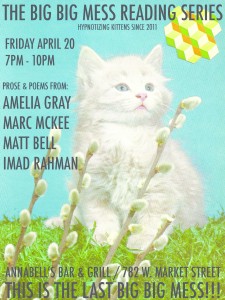
“The Big Big Mess Reading Series is the only institution like its kind in Akron,” Mertz said. “It’s really something special, to drive to the ambient Highland Square, make the stumble into the basement of Annabell’s, and hear really excellent poetry from people all over the country. It’s totally awesome and completely inspiring.”
“Poetry isn’t just this thing that you do in your bedroom,” Sturm said. “Poetry is made to be read aloud. It’s supposed to come out of your mouth and it’s supposed to hit people in the face. It’s a totally different experience to be in a room and see that. Poetry is thought of as something that happens between people, continually.”
All people who are looking to establish themselves in the world make connections. The same goes for artists. At the Big Big Mess, the middleman of the book is cut out of poetry, and the audience and poet are suddenly face to face, establishing the connection that they were both trying to make through the typed word.
Much of poetry today exists on the Internet; poets are very spread out, run on diverse schedules and communicate indirectly. Almost every other art form requires more communication than poetry. Visual artists share studio spaces and materials, musicians and dancers practice and perform in groups. A poet, on the other hand, can very quietly write, print and distribute a book.
As a poet, Sturm knows this. But he also knows that although poetry seems like a very individual experience, everybody is struggling the same struggle.
A reading series offers a “different group of people with a different set of viewpoints,” he said. He encourages all types of people to come to the Big Mess, and especially all types of artists.
This Friday is the last Big Big Mess reading. It will feature Amelia Gray, Marc Mckee (coming in from St. Louis) Matt Bell and Imad Rahman.


